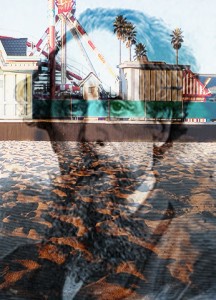This article originally appeared in the The Chronicle of Higher Education, July 26, 2011. Written by Gina Barreca.
I’m pretty sure I’d just finished course work when I went to The Dickens Universe at UC Santa Cruz for the first time in 1983, but I can’t find the journal and so I can’t be sure.
I wanted to grab that notebook, too, so that I could refer to the experience in the words I used back then. I know it amazed me; I know it shaped, immediately and forever, how I thought about myself and about the profession.
The Dickens Universe is part of the Dickens Project. As their Web site will tell you, “The Dickens Project of the University of California is a Scholarly Consortium devoted to promoting the study and enjoyment of the life, times, and work of Charles Dickens,” and the Universe is their annual conference, held on the Santa Cruz campus since 1981 (read more here).
There’s nothing like it. I’ve attended five Universes and, except for the MLA, this is the only conference I’ve attended more than twice. If it were not clear across the country, and if my own work had not taken me away from my early focus on the 19th century, I’d be battering on their doors still.
This is not to say that I don’t have Universe envy every year. I do. I check their Web site regularly and when, this year, I heard that Oprah had picked Great Expectations as “her” book I was desperate to have the Harpo Studio producers contact John O. Jordan, Director of the Project, because it was “their” book this year as well. Somehow the folks at Harpo missed the Thames Ferry on this one and didn’t make good on my suggestion, but the Universe didn’t need all that additional fame anyhow.
What happens at the Universe is this: About 200 people gather to talk about one particular Dickens work—it changes every year—and not all of these folks are university-based scholars. Many are teachers from high schools across the country; many are retirees who simply love the author; a number are book collectors or collectors of other Victorian artifacts; some are just bookish types themselves—avid fans of Dickens or avid fans of reading.
Alongside this mixed crew are the classiest names from the classiest places: everybody who has ever written or edited an important work on anything having to do with Dickens has been part of the Universe. I can think of very few exceptions (and although I know the stories behind a number of these, I would never, ever tell).
Many of the most impressive Victorianists are regulars, returning either every year or every few, staying in dorms or—if they are with their families—in the modest hotels near the Santa Cruz boardwalk.
Every year, John Glavin, professor at Georgetown, does a theatrical adaptation that becomes the stuff of legend. I once had the great good fortune to be cast as Lizzie Hexam in a Glavin production of Our Mutual Friend, in which I spoke the line: “I am scholar enough.”
It was to become my theme song, although I didn’t know it at the time.
It’s enormously convivial while still being a serious conference. Everybody eats together. Most people attend most sessions. The graduate students get to know the professors. The professors get to talk to teachers who ask them to answer questions about plot and character, the likes of which they haven’t been asked in 30 years.
This is good for everybody involved.
And it’s Santa Cruz. There’s a lovely mist in the morning, bright sun in the afternoon, and in the evening—for the friends of CD—there are “Post-Prandial Potations” (I always think of Murray Baumgarten, the other Founding Director along with John Jordan, when I think of those evenings, as well as remembering conversations with Jim Kincaid, Rob Polhemus, Janice Carlisle, Bob and Becky Tracy, Hilary Schor, and my advisor Gerhard Joseph—who always seemed to be either about to leave for, or just returning from, tennis…)
So how did it change my life? I learned that you could have fun and enjoy the company of those who researched, wrote, and taught. I learned that walking along the boardwalk after a long day makes equals of everyone, especially if the senior scholar drops his Sno-Cone down his shirt. I learned that performance mattered in terms of delivering even the most impressive of papers (a fact I was grateful to have impressed upon me before I finished my degree) and that those who authentically loved what they did were not pretentious and brittle curmudgeons but engaging and generous colleagues.
The Dickens Universe, then, more than 30 years ago, was a memorable time to me, for it made great changes in me.
“But, it is the same with any life. Imagine one selected day struck out of it, and think how different its course would have been. Pause you who read this, and think for a moment of the long chain of iron or gold, of thorns or flowers, that would never have bound you, but for the formation of the first link on one memorable day.”

